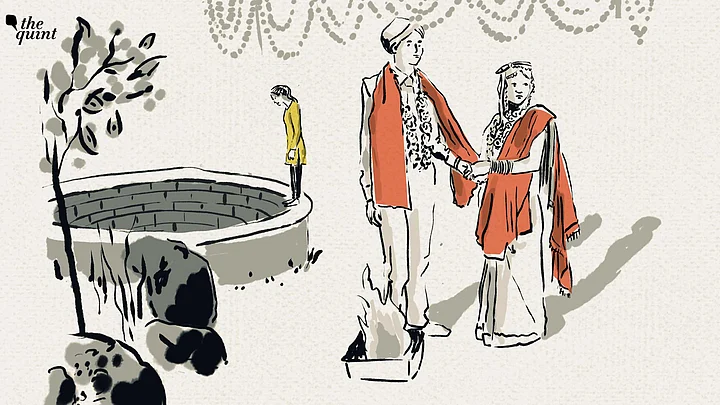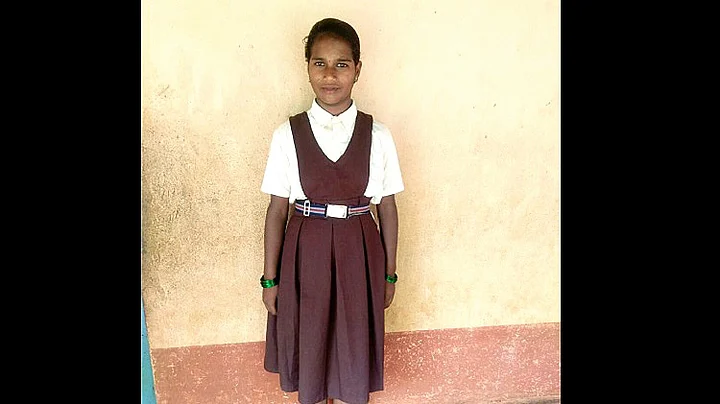Some days should be recorded as black days in history. On 17 September, 2021, the Rajasthan government passed a law to register child marriages. Yes, the same act that the Indian Constitution sees as a cognisable offence. It looks like while the whole world is trying to end the age-old evil of child marriage, Rajasthan is breaking all records to present itself as a child marriage-friendly state.
Here is a simple analogy to understand the controversy around the child marriage law: a person commits a cognisable offence and asks that the authorities do not punish him, but rather register the offence he has committed. Leave alone cognisable offences, a common crime, such as forging the papers of someone’s property, can’t be legitimised by simply registering the property under the criminal’s name. But that’s exactly the premise of the law passed by the Rajasthan Assembly.
State Govt's Three Arguments
The Ashok Gehlot government seems to care little about what happens when a child marriage is registered, and along with it, a number of abuses (physical, mental and sexual) related to child marriages get legitimised as well.
I am a field activist and have done ample groundwork. I have worked directly with child marriage victims and was the first person in India to get a child marriage nullified. After that, 43 child marriages were annulled, for which Saarthi Trust has been recognised by seven international and national records. I have stopped more than 1,500 child marriages, and my mission of annulment has also been included in the CBSE curriculum. Thus, on the basis of experience, it will not be an exaggeration to say that the state government has shown gross short-sightedness. Rajasthan had climbed to the top position in India in terms of child marriage annulments, but with this latest Bill, all progress made in the last few years will be undone.
The state government has given three arguments for introducing this amendment. The first was that as per the decision of the Supreme Court in the case of Smt. Seema vs Ashwani Kumar in Transfer Writ (Civil) 291/2005 dated 14 February, 2006, it is mandatory for every marriage to be registered. But it is to be noted that the Supreme Court did not mention ‘child marriages’ anywhere in its decision. It’s a different story that child marriages, socially, are regarded as valid marriages, but nowhere did the Supreme Court mention in its decision that child marriages were also to be included in registrations. If it’s mere confusion that the Rajasthan government was facing, it could have approached the Supreme Court for a clarification. But far from it, the government went ahead with its own shoddy interpretation to push this amendment.
A Totalitarian Mindset
India is a democratic nation. For any law, the people for whom a Bill is meant become the main stakeholders. For sensitive laws, governments, ideally, must consult the public, civil society groups and grassroots activists to grasp the myriad challenges the people are up against. But the Rajasthan government did not consider that necessary. Inviting public opinion is a far cry — the government’s actions reek of a dictatorial, ‘Indian Taliban-like’ mindset that pays no heed to victims or those who work for the victims and understand the true nature of conflicts.
The state government has also said that the rationale behind the amendment is not granting legality to child marriage, but only registering it. But registration, in a general sense, is itself a mark of validity.
The government has also mentioned the prevention of bigamy/polygamy and extending benefits like maintenance, succession, etc., in its rationale behind introducing such an amendment. But all these benefits are already available to victims under the Prohibition of Child Marriage Act, 2006, and under other schemes.
The Rajasthan government's second argument is that through this Bill, provisions like annulment (cancellation) of child marriages and alimony, etc., will be simplified. But all these provisions are already available to child marriage victims. In fact, on the contrary, such registrations will make annulments much more complicated. To cite an example, when a child marriage victim would go to court for an annulment, they may be asked for the certificate of registration. Now, if the victim's parents have not registered the child marriage in the past (due to fear of punishment or for any other reason), the person would be deprived of the right to an annulment because they will not be able to file a case in the absence of that registration certificate.
From Office to Office, Taluka to Taluka
On the other hand, even if the parents have got the registration done, the certificate will remain in their custody. There may arise a case, especially in an orthodox society, where parents might never give that certificate to the child for the nullification of the marriage. It’s foolish to think that families that uphold child marriages will say to their girls: “Jaa Simran, Jaa, Jee Le Apni Zindagi” (Go Simran, live your life).
Most child marriages in Rajasthan are done on the occasion of ‘Mausar’, a backward tradition wherein all the children of nanihal (maternal grandparents’ family) and dadihal (paternal grandparents’ family) are given into child marriages when there’s a death in the family.
Further, under the latest amendment, parents will be able to solemnise the marriage of even a four-days-old girl and register it within 30 days.
In such a situation, a victim, along with tolerating this exploitation, would find it excruciatingly difficult to find out where his/her marriage took place years ago and in which taluka the registration was done. It’s hard to imagine the ordeal of a woman going from taluka to taluka, from one government office to another, in a rigid, illiberal society, looking for a registration done years ago.
It’s only likely that the victim will not be able to file a case for annulment and will remain trapped in this cycle of injustice as she crosses 20 years of age, which is the age limit for the annulment of a child marriage.
A Shoddy Way for 'Research'
The Rajasthan government has also argued that with this amendment, research and surveys on child marriages can be carried out more thoroughly, and it’ll be easier to find out in which regions the practice is more prevalent. But that’s a senseless argument. There are a number of ways to carry out research — registering a cognisable offence shouldn’t be one of them. Any competent research agency can provide ample tools for esoteric studies, if the government’s real intent is, in fact, to gain a better understanding of child marriages.
But in reality, the Bill is just a political exercise, albeit an excellent one, to please Jati Panchs (community leaders), who command popular support and are strong vote-pullers in Rajasthan.
In most cases, when a girl or a boy raises her/his voice against their marriage, the Jati Panchs ostracise them and their families and impose a monetary penalty on them. In a way, the scourge of child marriage continues in Rajasthan due to these Jati Panchs.
The Rajasthan government’s double standards lie exposed now. On one hand, it sings paeans about protection, development and women empowerment, but on the other, it not only promotes but legitimises abuse and exploitation under child marriages.
Far From 'Baal Vivah Mukt' Rajasthan
The government’s action has thrown open a well of contradictions. The Prohibition of Child Marriage Act, 2006, states that child marriage is a cognisable and punishable offence. But the latest Bill gives legitimacy to that cognisable offence. To date, we have been telling the victims that if nobody is around to help and you are going to give into child marriage, then you should inform a government employee. But from now on, the responsibilities of these two departments of the government will be different.
We forget that along with the registration of child marriages, we are also according validity to the slew of issues related to child marriage — sexual abuse, domestic violence, child trafficking, to name a few. In a society whose traditions are rooted in patriarchy, such cases are only going to increase now. “She is my wife and I can do anything with her because I am her husband,” is not an uncommon expression in our society.
The Bill is shameful — legally, socially and morally.
In 2016, the Rajasthan government had launched a campaign to stop child marriages. Its slogan was “Baal Vivah Mukt Rajasthan Hamara” (child marriage-free Rajasthan). Today, it might as well change that slogan to “Baal Vivah Yukt Rajasthan Hamara” (child marriage-friendly Rajasthan).
(Dr. Kriti Bharti is a rehabilitation psychologist, social activist, child rights advocate and Managing Director of Saarthi Trust. She has carried out the first annulment of a child marriage in the country and has so far annulled 43 pairs of child marriages, along with more than 1,500 child marriage stops.This is an opinion piece and the views expressed above are the author’s own. The Quint neither endorses nor is responsible for the same.)
(At The Quint, we question everything. Play an active role in shaping our journalism by becoming a member today.)




